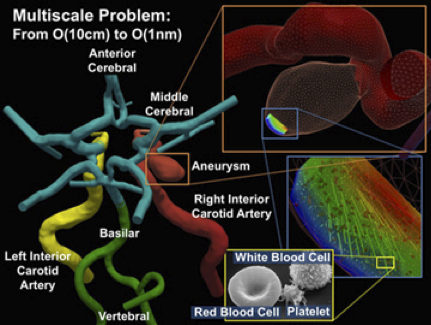In recent years, there have been great advances in mathematical and computational modeling of cardiovascular phenomena. The ultimate goal is to develop predictive mathematical tools that can be used in medical decision-making and treatment. There has been notable success in some areas; for example, extensive numerical simulation is used in some hospitals to plan pediatric heart surgery. However, further progress is needed for the use of such mathematics-based methods to become widespread and routine. Additional advances will require close communication and collaboration between mathematical scientists and physiologists in order to guide further developments most effectively.
ICERM, the Institute for Computational and Experimental Research in Mathematics at Brown University, will host a workshop entitled “From the Clinic to Partial Differential Equations and Back: Emerging Challenges for Cardiovascular Mathematics,” January 20-24, 2014. The aim is to bring mathematicians and medical doctors together to foster collaboration on modeling the cardiovascular system. The workshop will be organized along two lines: “core topics” in mathematical and numerical methods that require further research; and “new challenges” arising from cardiovascular problems and diseases that have not been attacked extensively with numerical tools. The “core topics” will include fluid-structure interaction, multi-scale dynamics, and data assimilation. The “new challenges” will focus on liver circulation, cardiac re-synchronization therapy, chronic venous insufficiency, and coiling of intracranial aneurysms. The workshop format will include round-table discussions in small groups as well as lectures.

More information about the workshop, including a current speaker and participant list, can be found here. Those interested in participating in the workshop are encouraged to apply online here. Limited funds are available for participant support; requests for funding can be indicated in the online application.